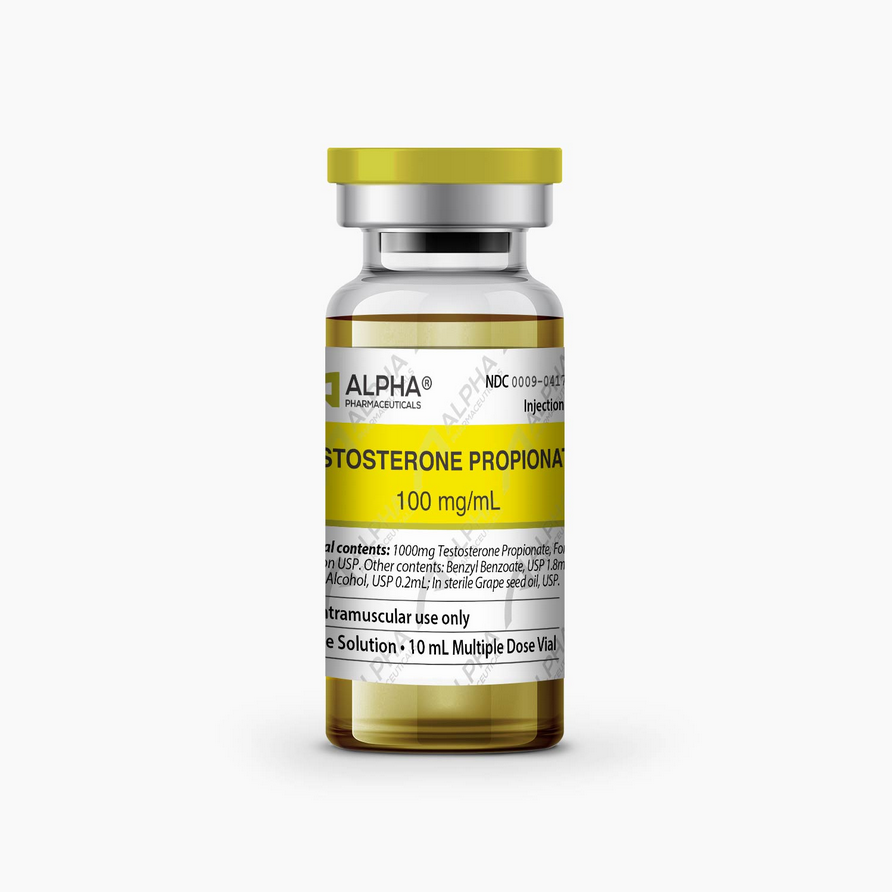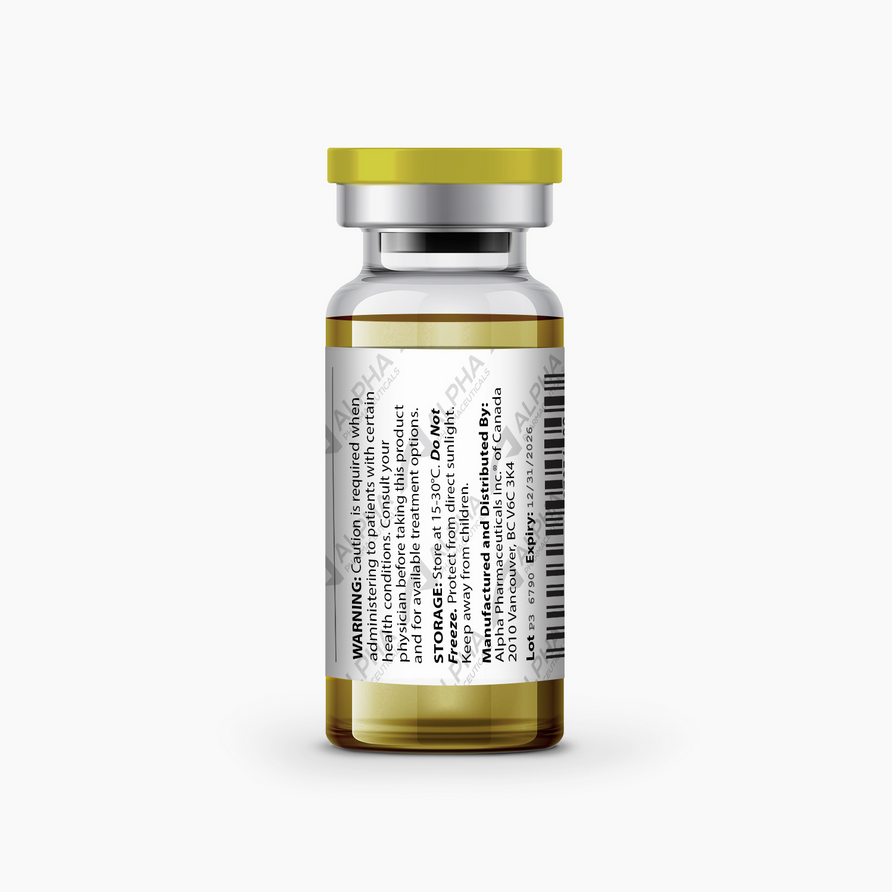$80.10
Testosterone propionate is a potent androgenic steroid used primarily for its muscle-building and performance-enhancing effects. While it offers benefits in terms of muscle growth and recovery, potential users should be aware of the associated risks and side effects. Responsible use under medical supervision and adherence to legal and ethical considerations are crucial for anyone considering the use of testosterone propionate or any other anabolic steroid.
estosterone propionate, often abbreviated as “test prop,” is a specific form of testosterone that is commonly used in the world of bodybuilding and athletics. It is an injectable testosterone compound characterized by its short-acting nature due to the propionate ester attached to the testosterone molecule.
Characteristics
- Chemical Structure: Testosterone propionate is a natural androgenic hormone that is structurally similar to endogenous testosterone produced by the body.
- Ester Attachment: The propionate ester attached to testosterone propionate slows its release into the bloodstream. This results in a relatively short half-life of approximately 4.5 days, requiring more frequent injections compared to longer-acting testosterone esters like testosterone enanthate or testosterone cypionate.
Uses and Benefits
- Muscle Growth: Like all forms of testosterone, testosterone propionate promotes protein synthesis, which leads to increased muscle mass and strength gains.
- Enhanced Recovery: Testosterone propionate aids in recovery between intense workouts by improving nitrogen retention and promoting quicker repair of muscle tissue.
- Increased Performance: Athletes often use testosterone propionate to enhance athletic performance, including improved endurance and power output.
Administration
Testosterone propionate is typically administered via intramuscular injection into the gluteal muscle. Due to its short-acting nature, injections are usually required every other day or every third day to maintain stable blood levels.
Side Effects
While testosterone propionate offers benefits in terms of muscle growth and performance enhancement, it also carries potential side effects, including:
- Estrogenic Effects: Testosterone can convert to estrogen in the body, leading to side effects such as water retention, gynecomastia (breast tissue enlargement in males), and potential mood swings.
- Androgenic Effects: Testosterone propionate can cause oily skin, acne, and accelerated hair loss in individuals predisposed to male pattern baldness.
- Cardiovascular Risks: Elevated testosterone levels may negatively impact cholesterol levels, potentially increasing the risk of cardiovascular disease.
- Suppression of Natural Testosterone Production: Like other forms of exogenous testosterone, testosterone propionate can suppress the body’s natural testosterone production. Post-cycle therapy (PCT) is often used to help restore natural hormone levels after a steroid cycle.
Legality and Ethics
The use of testosterone propionate, like other anabolic steroids, is regulated and controlled in many countries due to its potential for misuse and abuse. In competitive sports, the use of testosterone propionate is typically prohibited by anti-doping agencies and can result in sanctions and disqualification if detected during drug testing.
2 reviews for Test Propionate
There are no reviews yet.
Related products
Injectable
Injectable



Be the first to review “Test Propionate”